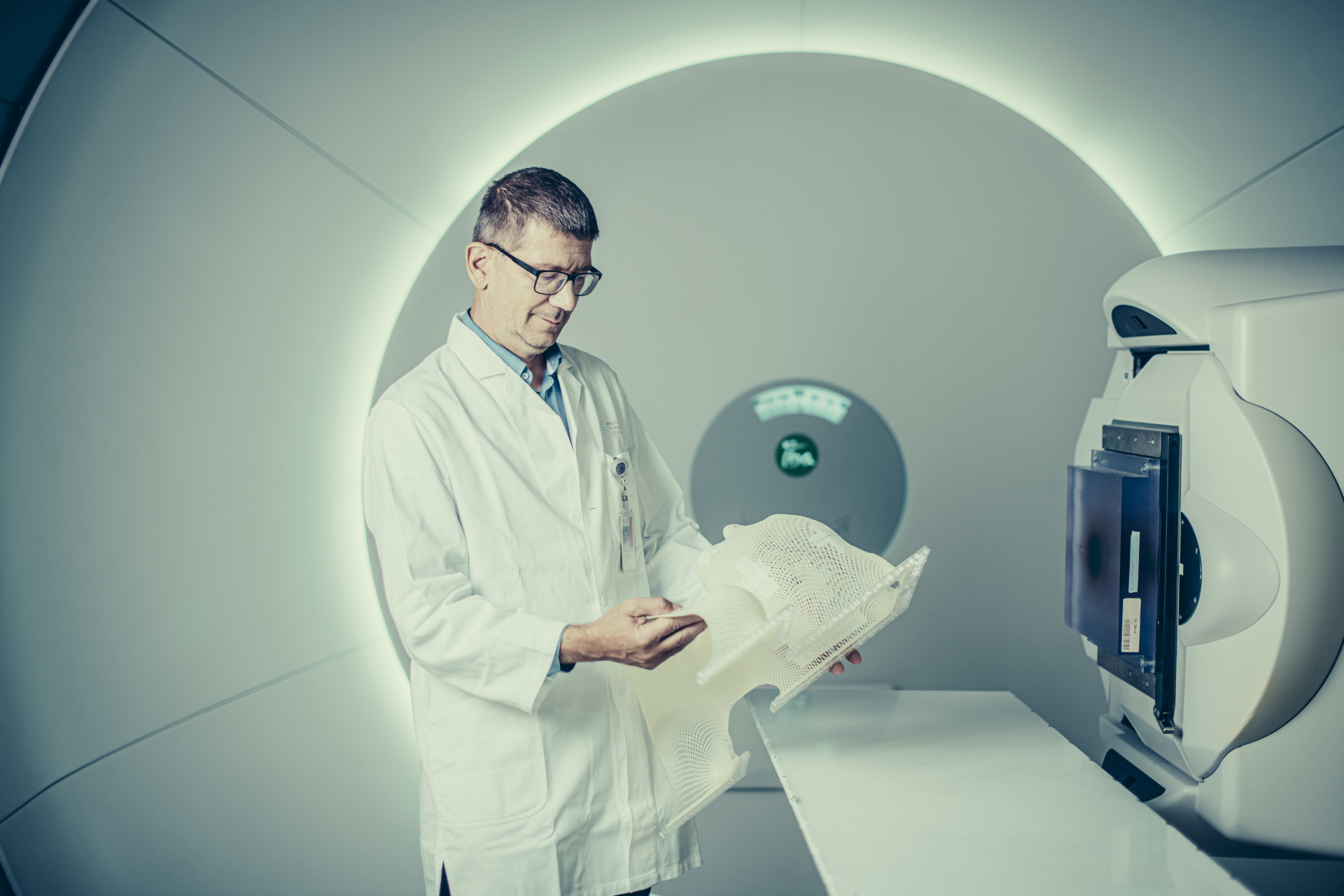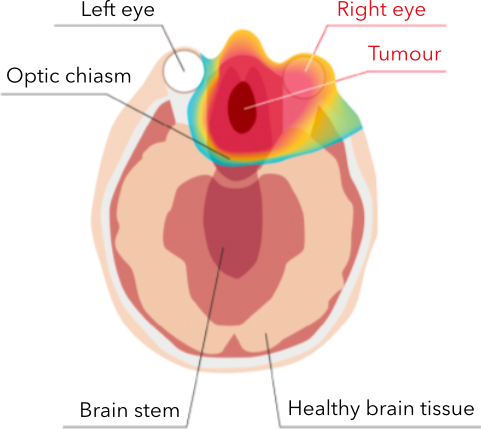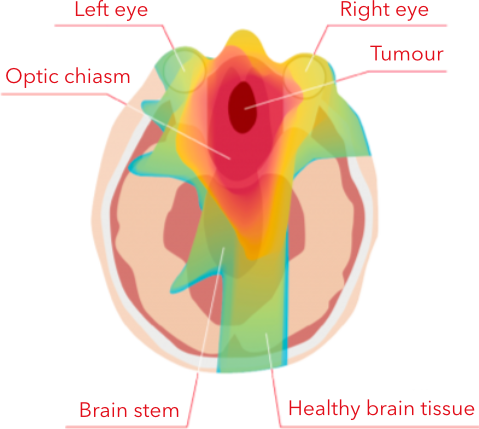
Proton therapy is a precise and gentle head and neck cancer treatment method with minimal side effects. Proton therapy enables precise targeting of the proton beam at the target area (tumor or tumor bed) and minimises exposure of surrounding tissues and organs to radiation. Thanks to proton therapy, it is possible to irradiate patients with tumours located in areas that are difficult to treat, for example, near the optic and auditory nerves or spinal cord.
The benefits of proton radiotherapy for head and neck cancer may already be seen in the course of treatment when the vast majority of patients are able to undergo treatment without hospitalisation and various invasive procedures (such as the insertion of feeding tubes into the stomach).
At the Proton Therapy Center in Prague, proton therapy is used to treat:
- nasopharynx;
- paranasal sinuses;
- salivary glands;
- tonsils;
- eye socket;
- middle and inner ear.
Advantages Of Proton Therapy Over Conventional Radiotherapy
Risks of standard radiation are minimised in proton therapy. Head and neck radiation ranks among the most demanding treatment types both for patients and physicians. Head and neck tumours are localised in close proximity to many risky structures which have a significantly lower ionising radiation tolerance (spinal cord, salivary glands, brain stem, swallowing pathways, eyes, optic nerve, etc.), which means that in case of standard photon therapy, it is not always possible to apply a sufficient amount of radiation without damaging these organs.
Proton therapy:
- allows us to significantly reduce the dose of undesirable radiation to the brain, and thus prevent the risk of development of memory impairment;
- allows us to significantly reduce the dose of undesirable radiation to the spinal cord by up to 80%, and thus prevent the development of myelopathy accompanied by movement impairment or even paralysis;
- allows us to significantly reduce the dose to all optic structures (macula, cornea, retina, optic nerve), and thus mitigate the risk of visual impairment or loss;
- also mitigates the risk of hearing impairment or loss, namely at high frequencies;
- allows us to reduce the dose to the structure of swallowing pathways, and thus decrease the probability of swallowing difficulties, saliva production disorder, and necessary insertion of a nutrition feeding tube into the stomach (PEG).
|
PROTON IRRADIATION Protons target the tumour directly, sparing healthy tissues and organs from unwanted effects. |
PHOTON IRRADIATION
|
International treatment protocols and organisations, such as ASTRO (American Society for Therapeutic Radiology and Oncology), recommend considering proton radiotherapy for selected head and neck diagnoses. Based on worldwide experience and long-term results in treated patients, it is clear that patients after proton treatment have a higher quality of life compared to those who have undergone other treatments.
Proton Therapy in Prague
In order to choose the optimal treatment, it is important to receive comprehensive and comprehensible information. If radiotherapy has been recommended to you, ask the treating oncologist about all the available irradiation methods as well as treatment-related side effects. These may significantly affect the quality of your life during and after treatment. Our physicians have many years of experience in radiotherapy. Moreover, they are experienced in both standard (photon) and proton radiation therapy and are prepared to answer all of your questions. Do not hesitate to contact us.
The treatment is outpatient, and you come to the Proton Therapy Center for radiation and regular check-ups during treatment. One visit takes about 60 minutes while the radiation is a matter of a few minutes. Prior to each radiation session, we carefully check your position using X-ray scans and carry out certain other checks necessary to commence irradiating. At least once a week, you undergo check-ups with the physician who will go through the treatment progress with you and check your condition.
In most cases, the whole treatment lasts from 25 to 35 business days, according to the regime determined by the physician on the basis of the initial assessment and other diagnostic tests.

 Photons irradiate the tumour as well as the healthy tissues and organs around it.
Photons irradiate the tumour as well as the healthy tissues and organs around it.